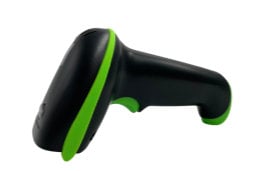 We all know how important it is for student nurses to learn technical skills in a safe and supportive environment before they care for real patients. As nurse educators, our goal is to nurture their expertise. One crucial aspect of this is providing deliberate practice opportunities with immediate feedback. But it can be challenging to find an efficient and effective method to acquire and maintain these skills over time.
We all know how important it is for student nurses to learn technical skills in a safe and supportive environment before they care for real patients. As nurse educators, our goal is to nurture their expertise. One crucial aspect of this is providing deliberate practice opportunities with immediate feedback. But it can be challenging to find an efficient and effective method to acquire and maintain these skills over time.
Let's explore an innovative approach: using upper-level student nurses as peer mentors in the skills check-off process. This approach not only overcomes traditional limitations but also brings a host of benefits for everyone involved.
The Challenge: Breaking Free from Traditional Constraints in Nursing Schools
In the traditional approach, nursing students learn patient care skills and then demonstrate them shortly after. However, skill degradation often happens when there's a time gap between the initial demonstration and subsequent opportunities to perform the procedure. A one-time skills check-off doesn't guarantee continued proficiency. This process can create anxiety and challenges for both educators and students. We need a fresh and effective solution to ensure skill competency among student nurses.
The Solution: Embracing Peer Mentorship for Future Nurses
To overcome the limitations of the traditional skills check-off process, let's utilize upper-level student nurses as peer mentors. These mentors have already mastered the required skills and can play a crucial role in enhancing the learning experience for their fellow students. By training these mentors at the beginning of each semester and setting clear expectations for providing feedback, we create a transformative approach to skill acquisition.
The "How": A Collaborative Learning Journey
Throughout the semester, lower-level students undergo comprehensive training in technical skills based on the curriculum. This includes watching instructional videos, reviewing written procedural steps, attending lectures, and engaging in hands-on practice within the nursing skills lab. Students can also practice in an "open lab" setting before scheduling a return demonstration. During the return demonstrations, instead of working solely with faculty, students are partnered with two upper-level peer mentors. One mentor records the skill performance, while the other follows along on a checklist and provides immediate verbal feedback. Students can choose to submit the performance checklist and video for faculty evaluation or have another session with the peer mentors. Faculty can review the checklists and videos at their convenience.
The "Why": A Win-Win for All
Incorporating upper-level student nurses as faculty extenders in the skills check-off process offers numerous benefits. Firstly, students experience less stress during check-offs while still being held accountable through video documentation. Secondly, peer mentors gain valuable experience in providing feedback while reinforcing their knowledge. Lastly, faculty have more time and resources to support students who may struggle with specific skills. This paradigm shift is a win for everyone involved!
The Result: Unleashing the Potential of Peer Mentorship
By embracing the power of peer mentorship in nursing education, we can revolutionize how student nurses acquire and maintain technical skills. Using upper-level student nurses as faculty extenders in the skills check-off process overcomes limitations and offers a promising solution for fostering skill competency. This approach benefits students, peer mentors, faculty, and simulation lab staff alike. Let's embark on this collaborative journey to empower our student nurses and shape the future of nursing education.
Check out these other blog posts for time saving tips for nurse educators and future nurses:
Simplify your Nursing Lab Workload with Reusable Resources
Solve Skills Check-off Dilemma: Use Peer-mentors as Faculty-extenders
Here's the link to read our article: Usefulness of Video-Assisted Peer Mentor Feedback in Undergraduate Nursing Education.



